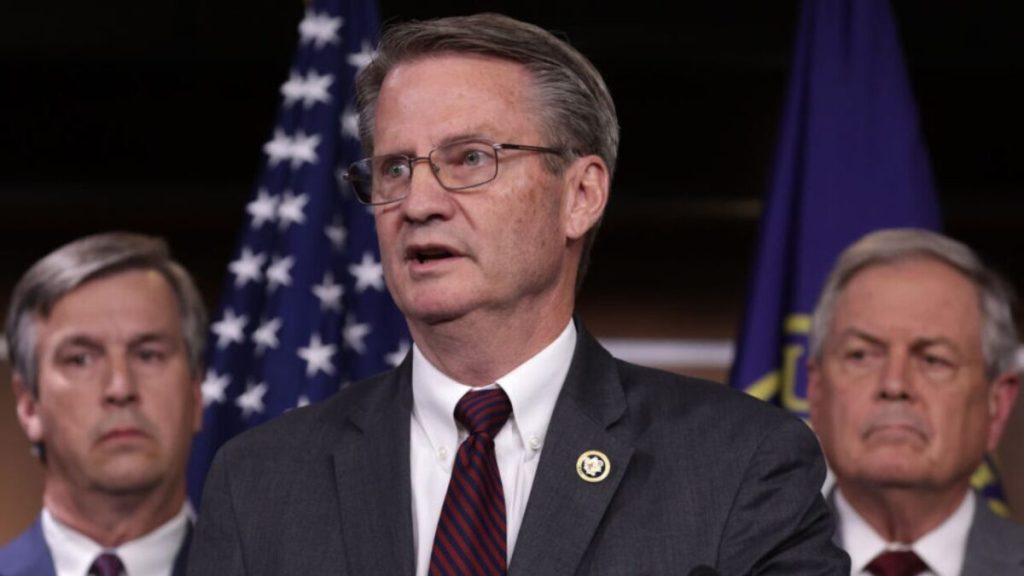The Afghan Taliban continues to misuse foreign aid to promote terrorism and destabilize the region. US Congressman Tim Burchett has highlighted this alarming issue in a letter to President-elect Donald Trump, urging an immediate halt to funding the Taliban.
Burchett raised grave concerns about the misuse of US taxpayer dollars. He labeled it as “funding terrorists” and criticized the flow of financial support to an extremist organization. The Congressman specifically accused the Biden administration of enabling indirect funding of the Taliban through foreign aid.
The letter revealed a shocking admission by Secretary of State Antony Blinken. Blinken reportedly acknowledged that non-governmental organizations paid nearly $10 million in taxes to the Taliban. These funds, meant for humanitarian assistance, are being channeled into the hands of a terrorist group.
Burchett warned that this misuse of foreign aid is not limited to Afghanistan. Instead, it contributes to the Taliban’s broader agenda of spreading terrorism in the region, particularly in Pakistan. He claimed that the funds are being weaponized to destabilize neighboring countries and fuel extremist activities.
The letter also attracted the attention of Elon Musk, who publicly questioned whether US taxpayer money is indeed supporting the Taliban. Musk’s remarks amplified public scrutiny of how foreign aid is distributed and monitored.
Evidence continues to mount that the Afghan Taliban uses financial resources, including foreign aid, to strengthen its grip on power. Instead of providing relief to vulnerable populations, the aid bolsters the group’s capacity to promote terrorism. This includes facilitating safe havens for extremist networks and supporting their operations.
The consequences of this misuse are far-reaching. The Taliban’s activities have heightened regional instability, particularly in Pakistan, where the group’s influence exacerbates security challenges. The funds indirectly contribute to violence, further weakening governance and economic stability in the region.
Burchett’s call for action underscores the urgent need for stricter controls on foreign aid distribution. International donors must ensure that humanitarian funds are not exploited by extremist organizations. Failure to do so risks empowering groups like the Taliban to continue their reign of terror.
The misuse of foreign aid by the Afghan Taliban exposes the group’s insincerity about governance and peace. While presenting itself as a legitimate authority, the Taliban diverts funds to sustain its terrorist networks. This duplicity highlights why global scrutiny and decisive action are essential to ending the cycle of violence fueled by foreign aid.
The Afghan Taliban’s exploitation of foreign aid reveals a troubling pattern of misuse that directly undermines regional security. Funds intended for humanitarian relief are redirected to sustain terrorism, violating the trust of donor countries. The Taliban’s financial strategies involve imposing taxes on aid organizations, effectively transforming goodwill into a tool for violence.
This misuse reflects the broader challenges of engaging with extremist groups in power. By diverting aid, the Taliban strengthens its capacity to harbor and expand terrorist networks. The impact is evident in heightened instability in Pakistan and the broader region, where terrorist operations thrive under Taliban support.
For donor countries, particularly the United States, this situation demands a reassessment of foreign aid policies. Mechanisms must be put in place to prevent aid from benefiting extremist organizations. Transparency, accountability, and oversight are critical to ensuring that funds reach those in need rather than perpetuating cycles of violence.
By exposing these practices, Congressman Tim Burchett has reignited the debate on the role of international aid in conflict zones. His warnings about the misuse of funds by the Afghan Taliban should prompt global action to safeguard the integrity of foreign assistance programs and prioritize peace over violence.


